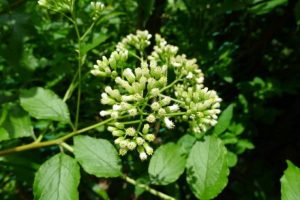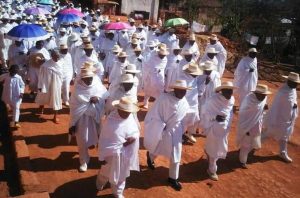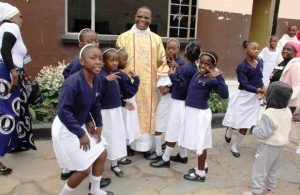They are running many projects including; carpentry workshop, fabrication and welding workshop, Bakery, cooking oil refinery and a farm.
When the civil war broke out in 2017, they left Lomin and settled in Moyo. While in South Sudan, they run a number of projects to help the people in Lomin improve their livelihood. Not even the war was going to stop these missionaries from helping people around. Soon, they found out that many of the people they were helping in Kajo Keji had settled in the refugee Camps in Palorinya in Moyo district. This was the best timing for them.
They acquired a piece of land in Palorinya close to their people. Their projects have kicked off again and this time unlike before in Lomin, they are making the refugees’ lives a little more comfortable. The projects are transforming the livelihood of the refugees in the nearby camps. The missionaries are running many projects at their property including; carpentry workshop, fabrication and welding workshop, bakery, cooking oil refinery and a farm. They employ a number of refugees. Bro Fafa Ayih who is the coordinator of the farm said he pays wages to forty-two people every month.
While the carpentry and welding workshops provide employment to the refuges, the bakery, cooking oil refinery and farm subsidies on the refugees’ diet. This is in form of cooking oil and bread which is sold to the refugees. Products like milk and meat vegetables are also sold to the refugees to subsidise on their diet.
Comboni Missionaries Moyo farm prides in animal husbandry like; cows, pigs, sheep, rabbits, goats, chicken, ducks and geese, and vegetables. Br. Fafa explained that the reason behind having the rabbits in the farm is to introduce rabbit rearing to the refugees. While his farm will be used as a model farm for rabbit rearing, Br. Fafa wants the refugees to begin this project in their homes so that they can earn some money from it and supplement on their income and diet
The spirit of missionary life is displayed by the deeds around the community. The team decided to build a cattle dip next to the road side so that the whole community can benefit from it. Br. Fafa added that he wants people with cattle from the neighbourhood to bring their cows to the dip. This he added will help reduce diseases among the cows in the neighbourhood.
He said he employs refugees because he wants to teach them to be independent and in the end help them decline from waiting for handouts. He noted that much as the refugees who work at the farm are entitled to lunch every day, they earn little money to supplement on the food they receive from United Nations High Commissioner for Refugees (UNHCR). William Lomena is a South Sudanese refuge who lives in Budi Settlement Camp and works at the farm taking care of the rabbits. Lomena said that he was informed about the job by his brother. He added that he begun working at the farm in 2018, and it has enabled him to take care of his family.
Chaplain Uji is another refugee from Kajo Keji living in Budi Refugee settlement camp. He said he started working with Br. Fafa while in Kajo Keji. He added that he asked for a job because he was idle at the camp and the situation was very dire for him. But with the money he gets from the farm at the moment, he is able to satisfy his family’s needs and supplement on the food they receive from UNHCR. Unlike his colleagues, Opira Matata said he has worked with Comboni missionaries in South Sudan for 15 years. He revealed that his brother was an employee of the missionaries before him. He joined through the construction team and works as an engineer with the Comboni missionary Moyo. Matata added that he has never had any complaint about his employers as they help him anytime he has a personal problem. He added that he feels like he is part of the family of Comboni missionaries.
He also prided that he earns good allowance from the missionaries and he is able to take care of his family. Br. Fafa said that the project in Moyo, Uganda is part of what used to be in South Sudan. He also revealed that most of the employees at the projects were the former workers in South Sudan.






